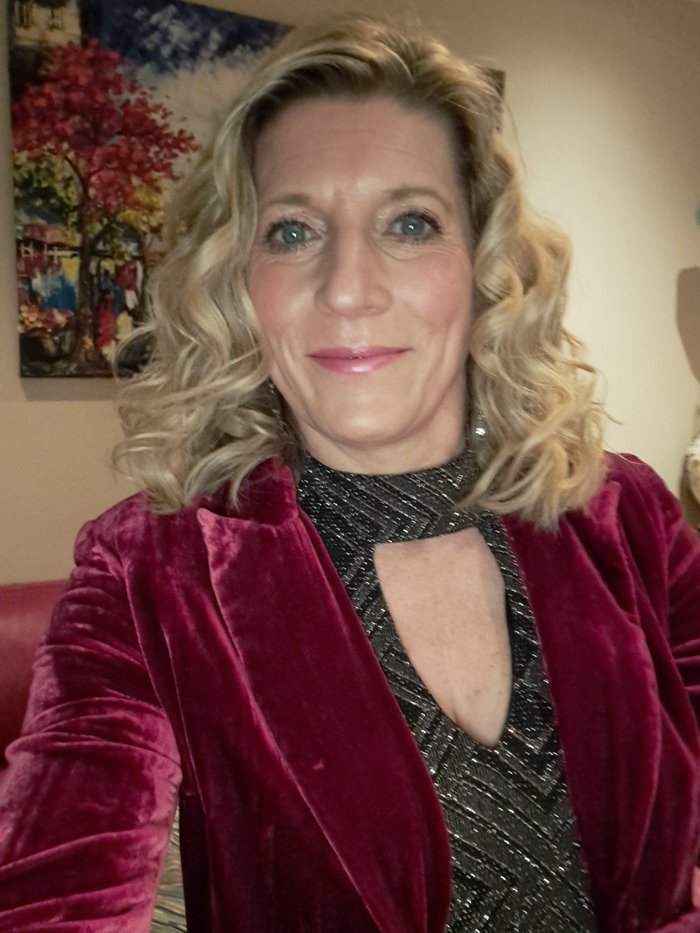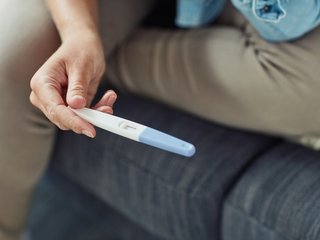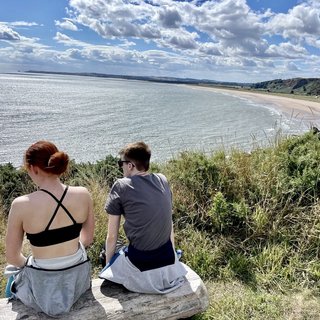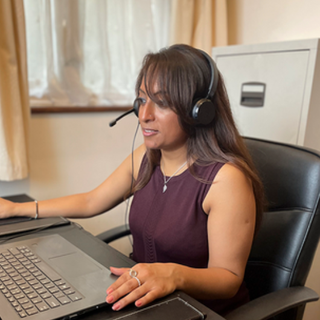Is this the menopause, or blood cancer coming back?
Helen has been in remission from Hodgkin lymphoma since 2008. She explains how menopause symptoms had her worried that the cancer had come back.

I was diagnosed with Hodgkin lymphoma in June 2007. This was after I had gone to the GP wondering what "these lumps were on my neck?" After a series of blood tests, scans and a biopsy, the diagnosis was confirmed as Hodgkin lymphoma Stage 2.
During the tests, I was asked about other symptoms. I had no idea what they were at the time, but the night sweats and fatigue were definitely things I had experienced for at least 6 months before the lumps appeared. I’d ignored them thinking it was hormones or just me being unfit, but it turned out they were also symptoms of Hodgkin lymphoma.
After 16 doses of a chemotherapy cocktail, ABVD, over 8 months, I was given the ‘all clear’ and went into remission.
After remission, I thought I could just put that dreadful time in a box and forget about it and get on with my life.
However, about 10 years after my ‘all clear’, I started experiencing symptoms again.
The night sweats and fatigue were dreadful and there was that constant niggling thought......has the cancer come back?
I’d been having annual check-ups ever since my Hodgkin lymphoma treatment ended, and at my 10th and final check-up they’d mentioned chronic fatigue. So I also wondered if I was suffering from that.
I looked up the symptoms for chronic fatigue and by chance also looked up perimenopause/menopause symptoms.
I realised I had lots of the symptoms of the menopause, but there was still that fear that it could be the cancer returning.
I reluctantly made a GP appointment. I went to them with my list of symptoms and comparisons. They agreed to run a series of blood tests to include thyroid and iron levels among other things.
Phoning up for my results the GP receptionist told me ‘they were all fine’ ...no opportunity to speak to the GP about it but I still didn't feel right.
Several months later and during the pandemic and lockdown, my symptoms were getting worse and included very irregular periods, anxiety, brain fog and poor sleep. The fatigue just took me back to my pre-cancer diagnosis where I would literally sit down on the settee and fall asleep.
I managed to get a telephone consultation with a GP who listened, was very understanding and confirmed it very likely was the perimenopause (possibly brought on early because of the chemotherapy) and offered me hormone replacement therapy (HRT).

Blood cancer and fertility
Blood cancer treatment can have an impact on fertility and sometimes causes early menopause. Read more about how treatment can affect fertility, and the help that's available.
Deciding whether to take HRT
Initially, I was very reluctant to take HRT. I was worried as I’d heard that it could increase the risk of breast cancer. So I initially opted for an alternative which would help to balance my hormones and maybe help to reduce the night sweats. But after several months of still feeling completely crap if I'm honest, I went back and luckily got an appointment with the same GP. She helped me put things straight in my head.
We talked through the pros and cons of starting HRT and I decided that for me, the benefits (helping with my symptoms and reducing my risk of osteoporosis) outweighed the slight increased risk of breast cancer. I decided life is too short. I could spend the next 10 years of my life 'struggling' through the menopause without HRT when - let’s be honest - there's always a chance I might get cancer again. Or I could try it and let HRT help me live my life to the full.
Hormone replacement therapy
HRT can slightly increase the risk of breast cancer, but the risk is low. For every 1,000 women who take combined HRT, there are around 5 extra cases of breast cancer. You can reduce the risk of breast cancer by not taking HRT for longer than you need it, and through lifestyle changes. It’s also important to check your breasts regularly for any changes, and attend any screening appointments you’re invited to.
For more information about Hormone Replacement Therapy (HRT), including the benefits and risks, visit the NHS website or speak to your GP.
So with a combination of friends' support (sharing helps), an understanding menopause nurse, the balance app, and implementing self-care, I’m getting there! Walking, yoga, singing, diet and good sleep routine all help. So does listening to podcasts when I do wake in the night, so my mind doesn't start racing.
I still hate the fatigue feeling as it does take me back to the time of pre-cancer diagnosis and thinking “What the hell is wrong with me?” even though we all joke about my nana naps where I can nod off anywhere. But I'm managing and coping, and accepting I'm not alone going through this. Help is there for the taking so reach out and take it – and don’t be afraid of going back to the GP.
I'm also adamant that if I can beat cancer, I'm not letting the bloody menopause get in my way.
If you're worried about symptoms
Gemma, Senior Support Services Nurse at Blood Cancer UK says:
“If you’re worried about any symptoms, whether you’re concerned about blood cancer, the menopause, or both, it’s important to speak to your GP. If you’re in remission from blood cancer and are worried about blood cancer coming back, you can also speak to your hospital team, or ask your GP to refer you.
"Some people have told us their symptoms aren’t taken seriously by their doctor. It’s important to persist with your doctor if something doesn’t feel right, as you know what’s normal for your body. Finding trusted information, and using this to help advocate for yourself, is key. You can contact our Support Team for help with this on 0808 2080 888 or email [email protected]."



